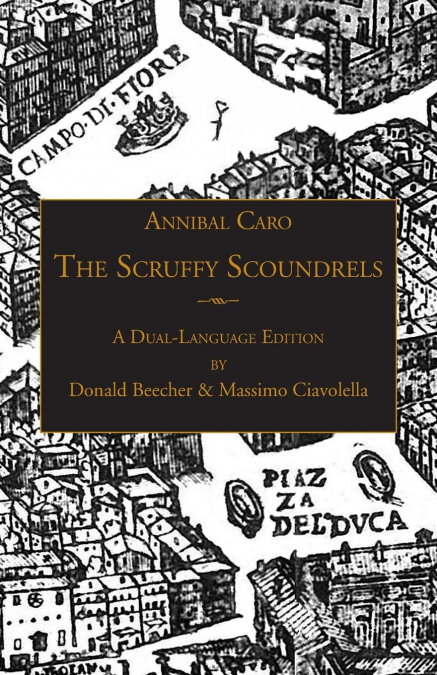
Annibal Caro / Donald Beecher / Massimo Ciavolella
 Donde los libros
Donde los libros
 Librería 7artes
Librería 7artes
 Librería Elías (Asturias)
Librería Elías (Asturias)
 Librería Kolima (Madrid)
Librería Kolima (Madrid)
 Librería Proteo (Málaga)
Librería Proteo (Málaga)
Annibal Caro wrote The Scruffy Scoundrels (Gli Straccioni) in Rome in early 1543 for his patron Pierluigi Farnese, the eldest son of Pope Paul III. The actual performance of the play was delayed, then ultimately canceled after the death of its patron. Caro denied numerous requests for permission to stage the play and even to have it copied. First published in 1582 in an edition full of errors and lacunae due to censorship, it was not until 1942 that the work was finally edited based on the original manuscript (Vaticano Urbinate 764). In his play Caro extends the range and variety of sophisticated farce, adapting contemporary stage conventions, based on the classical Roman plays of Plautus and Terence, to his acute observation of Roman life in the 1540s and his praise of the Farnese family. At first glance, The Scruffy Scoundrels seems like a series of unrelated scenes and sketches grouped around a highly conventionalized and loosely structured love plot. But each scene hails from a particular comic genre, each with its own topoi and character types. This is a measure of Caro’s comic genius. In his Prologue he boasts that he is the first to employ a triple plot in which the “scruffy scoundrels” genre meets Boccaccio’s farce and an elaborate love story borrowed from ancient Greek romance. The Scruffy Scoundrels is a masterpiece of humanist playwriting. The two “scruffy scoundrels,” the love squabble between servants, the stock farcical routines, the comic invectives and the long pathetic side-tales all derive from the forms, plots and characters of ancient Roman comedy. But Caro also sets his play firmly in the streets of early modern Rome and makes it both a social satire and an endorsement of the civic and legal reforms promoted by the Farnese pope, Paul III. Drama both imitates and helps construct life. In the end, the legal order imposed on the fictive Rome of the stage anticipates the new social order the pope intended for the marble, brick and mortar city. Introduction, bibliography, plot summary, notes. 222 pages. 3